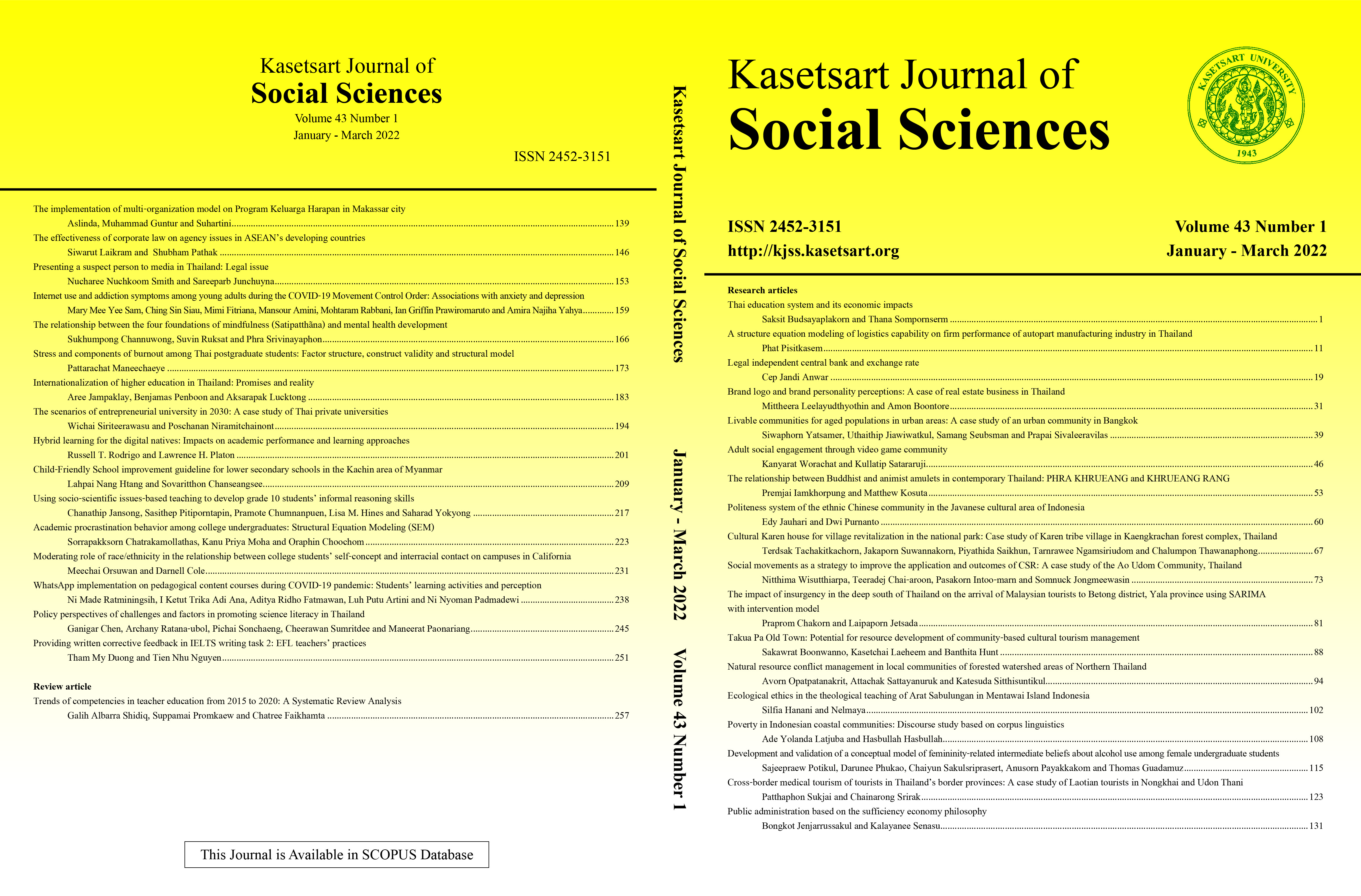Legal independent central bank and exchange rate
Keywords:
CBI, economic activity, exchange rate, mean group estimation, panel VARAbstract
This study developed a new solution for the heterogeneity responses of exchange rate and economic activity in relation to central bank independence shocks in developing countries. It used quarterly time series panels of 26 developing countries for the period 1991Q1–2019Q4. The analysis was based on a panel Vector Autoregressive estimation. The results revealed that CBI required up to a year to cause an appreciation in the exchange rate. We also concluded that exchange rate had an essential role to play in monetary policy transmission, to the extent that a change in CBI affected the domestic currency, thereby influencing private consumption and investment. This study was different from the existing literatures from several perspectives. First, by performing pool ability tests on the effect of CBI on domestic currency, this study showed that the pooling assumption in the panel data did not hold, and hence the model was biased. Second, we performed a mean-group estimation to the panel VAR as a solution to heterogeneity problem. Third, by dividing the sample countries into three poolable sub-groups, the results showed that CBI produced appreciation of the exchange rate for group 1 but depreciation of the exchange rate for group 2. For group 3, CBI strengthened the exchange rate after 6 quarters of the shock.
Downloads
Published
How to Cite
Issue
Section
License

This work is licensed under a Creative Commons Attribution-NonCommercial-NoDerivatives 4.0 International License.
This is an open access article under the CC BY-NC-ND license http://creativecommons.org/licenses/by-nc-nd/4.0/










